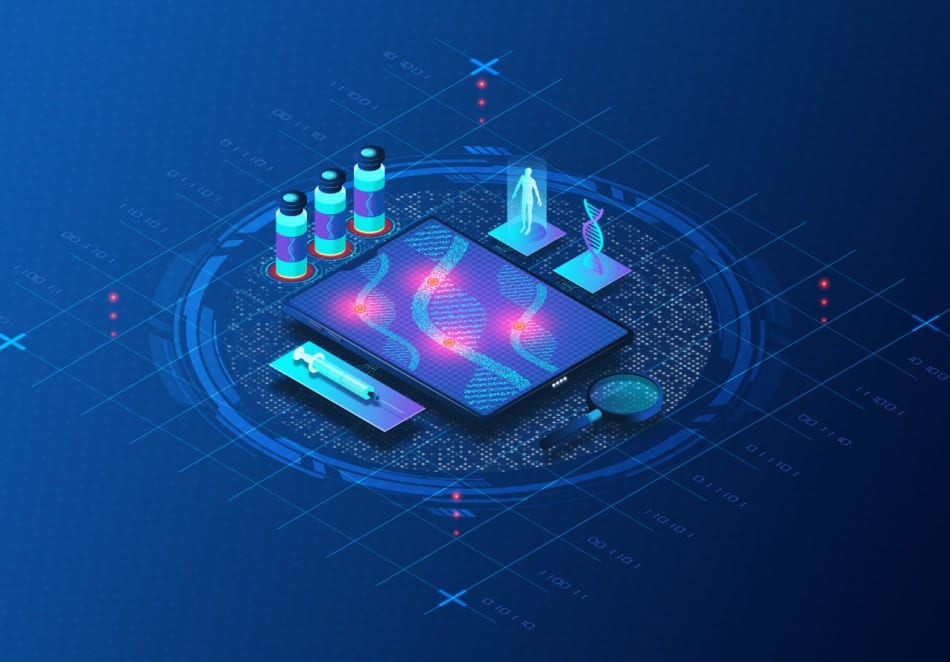Clinical trials are hitting an innovation inflection point and the form factors driving this change are the humble smartphone and smartwatch (alongside some slightly less humble pieces of tech like ingestibles & implants!).
The sensors native to the smartphones and wearable devices that we habitually use are not only becoming more accurate and precise, but the data that they collect is also being recognised by regulatory bodies as clinically meaningful – meaningful enough to be used as clinical endpoints.
The FDA and EMA both now accept sensor-derived measures including gait speed, heart rate variability and sleep patterns as endpoints, paving the way for their use in large-scale research and drug approvals.
In today’s blog, we consider the impact of this shift and how it signals a major turning point in digital biomarker maturity, transforming how therapies are developed, tested and monitored.
—
Remember 10 years ago, when everyone was starting their presentations with “Data is the new oil!”… Well, as much as our collective skins crawled, they were definitely right! Especially in the world of health & wellness, data has driven the super-human amongst us to higher levels of performance and the regular among us towards more productive and healthier everyday behaviours.
As innovation in the health & wellness sector continues to focus on what the petabytes of data can tell us that we didn’t already know about our bodies, our environments, our consumption and (unfortunately) our ailments… businesses are increasingly leveraging the sensor-rich consumer devices to find new, non-standard data points that can map to tangible human conditions.
Welcome to the age of the digital biomarker
Digital biomarkers can support and facilitate a patient-centric research and development approach.
Any patterns that arise in these datapoints can be applied to all stages of drug discovery and assist in the design and execution of experiments that identify potential treatments with a higher chance of success in clinical trials.
Digital biomarkers also show potential for use in patient-reported outcomes, to help demonstrate clinical benefit or efficacy of a therapy over time to regulators, such as a memory test that a patient can take on a smartphone app to show cognitive function.
Let’s explore a bit more about who’s doing what and how Waracle have supported companies looking to leverage mobile apps, data and analysis to create tangible value in this space.

The who, what and when of biomarkers
Conceptually, I’m certain you get the value of digital biomarkers but it never hurts to explore some real-world examples, that showcase the potential and possibilities. We’ll start by covering what others are doing, then take a look at what Waracle has been doing in this space for the past decade.
Verily – Project Baseline
Verily has developed a clinical-grade Study Watch, which has received FDA clearance for its ECG function. Data from their watch is being used in longitudinal studies to track disease progression in conditions like Parkinson’s and multiple sclerosis, with endpoints accepted in clinical research by both FDA and EMA.
Apple & Stanford Medicine – Heart Study
This Heart Study enrolled over 400,000 participants and showed that the Apple Watch could accurately detect atrial fibrillation in patients wearing the device. The data generated and collected was robust enough for the FDA to grant De Novo clearance for the Apple Watch’s irregular rhythm notification feature, a milestone for consumer tech in regulated medical territory.
Biogen – Alzheimer’s Research
Biogen has partnered with digital health startups to incorporate smartphone-based cognitive and behavioral tracking into Alzheimer’s clinical trials. The aim is to use subtle digital signals—like changes in speech, movement and/or device interaction patterns—as digital endpoints, several of which have been submitted to the FDA under exploratory use.
Koneksa Health – Oncology Trials
Koneksa’s digital biomarkers platform has been used in oncology trials to track patient performance status remotely through wearable devices. The company is working directly with regulatory agencies on digital endpoint qualification and its work has been highlighted in multiple peer-reviewed studies for its methodological rigor.
Waracle – Biomarker data from consumer tech
Waracle have been partnering with our digital health clients for over ten years researching, designing and engineering digital products to provide vital information about disease progression both in and out of clinical trial.
Our experience covers reimagining physical tests in mobile applications to measure data on tremors, patient gait, cognition and more. We have worked across Alzheimer’s disease, Parkinson’s disease, multiple sclerosis, Huntingdon’s disease, muscular dystrophy, ophthalmology, and obesity to name but a few…
That’s enough about us, let’s get back to digital biomarker innovation!
The future of the digital biomarker as clinical endpoint
The next frontier for digital biomarker data is to quantifiably and verifiably track the frequency and severity of disease signs and symptoms. These quantifiable, physiological, behavioural and psychological datapoints then will have the potential for continuous monitoring and real-time assessment.

Consistent tracking of a patient’s disease journey can better contextualise changes in patients’ daily mobility, daily physiology, identify trends in disease progression, and understand the response to the medication or assess patients’ response to therapy.
Alongside this, the future of biomarkers lies in the development of more sophisticated sensors, like the ingestibles and implants mentioned earlier! Another example of a sophisticated sensor would be something like the glucose sensor.
Whilst glucose monitors have been around for a while, the integration of this technology into wearable devices like smartwatches is a game-changer for managing conditions like diabetes, bringing the much-needed convenience to a once slow, manual and painful process.
Shifting the focus of biomarkers from research and development analysis datapoints to real-time, real-world condition management support.
Waracle’s perspective
As the expertise and innovation in the field of digital biomarkers continues to develop, we believe that there will be an increasing desire to use these technological tools across the health continuum from wellness to diagnosis, treatment to remediation.
It’s our belief that digital biomarkers have the potential to enhance our clinical programmes, accelerating the development and delivery of potentially life-changing therapies to patients across the globe.
We want to take our decade-worth of experience and apply it to more complex challenges in the world of CRO and pharmaceutical organisations, if you’d like to speak to our digital health experts, we’d love to schedule a call.

Authors
Digital Health - Technical Product Consultant
Related

Article • 10 February 2026
Waracle’s 2026 Strategy – Building the Benchmark for Modern Consultancy



